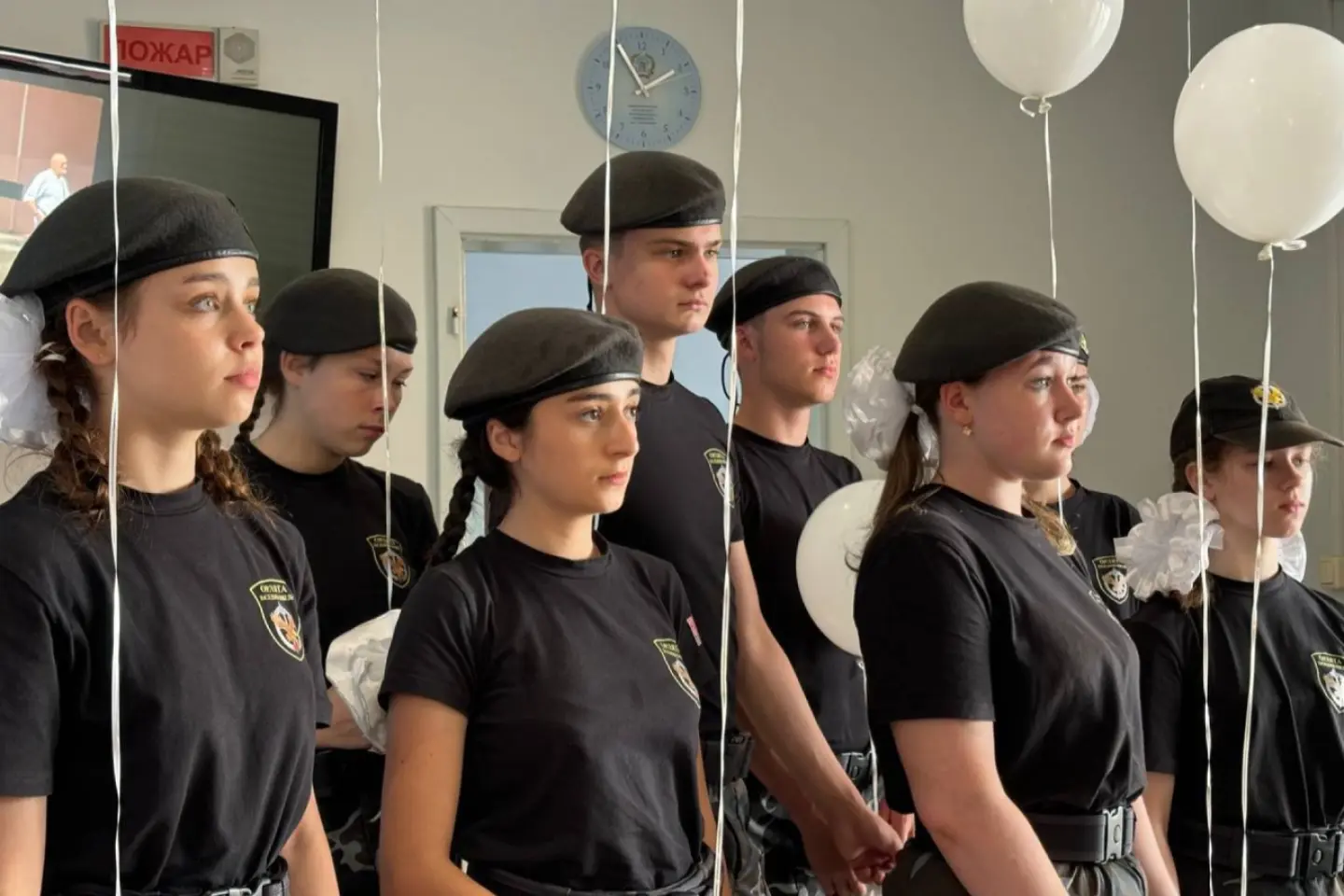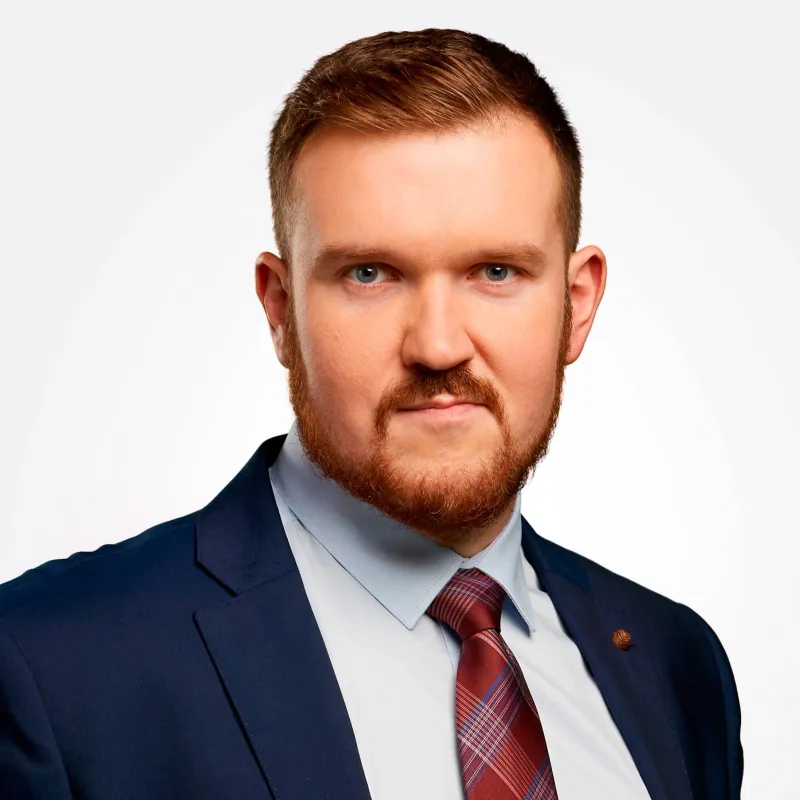
Before 2020, a lot of civil initiatives in Belarus were working in the sphere of education activities, students and professional exchanges, public diplomacy as well as children development programs. They were promoting Belarusian national identity, European heritage and ties with the neighbouring states – members of the EU. After the brutal crackdown in 2020 and the repressions only constantly increasing, Russian organisations started to widen their influence and to involve more actively in the field of children and youth activities.
Belarusian children are educated to become Russian patriots
The main agent of Russian influence in Belarus is the infamous “Rossotrudnichestvo” (the Federal Agency for the Commonwealth of Independent States Affairs, Compatriots Living Abroad, and International Humanitarian Cooperation). Rossotrudnichestvo’s main mission is to strengthen Russia’s humanitarian influence in the world – reads the “About” section of the organization’s website – which means that it is the main instrument of Russian soft power abroad. Its cells are called “Russian Houses” and are located in 87 countries around the globe. Rossotrudnichestvo is on the EU sanctions list of the EU, and even ex-Soviet countries like Azerbaijan and Moldova closed its affiliates.
The word “humanitarian” in the description of Rossotrudnichestvo’s goals is at least dubious. Since 2020, the Russian House in Minsk is getting more and more active, and following the 2022 large scale invasion of Ukraine, it started to promote Russia’s narratives of the conflict. For example, on June 27, 2025 the Russian House in Minsk held a “memorial event on the eve of the day of remembrance of children victims of war as a result of Ukrainian aggression against Donbass”. According to the website of the organization, “the staff of the Russian House in Minsk together with the military-patriotic club “Eaglets. Heirs of Victory!” honored the memory of the victims with a minute of silence and launched white balloons into the sky”. The “Eaglets” (“Orlyata” in Russian) club is one organised by the St. Elisabeth Convent of the Russian Orthodox Church, which is openly supporting the Russian war against Ukraine, gathering aid for Russian invaders and using religion to indoctrinate people with the ideas of “Russian world”.
Take a look at the “news” section of the Russian House and you’ll find out that almost a half of their events are dedicated to the younger generation, especially students of schools and universities. For example, the so-called “military-patriotic clubs”, one of which is mentioned above, are a typical form of indoctrinating school kids. Their massive creation all over the country is the answer of the Lukashenko regime to its unpopular image among youth, with the aim of raising a generation completely loyal to the dictator. At the moment in Belarus there are more than 220 of the clubs. There the kids are taught the ideology of the Lukashenka regime, which includes the support for Russian aggression against neighbouring states as well as anti-Western conspiracy theories.
The Russian House is actively taking part in forming the agenda of these clubs activities, as they are fully controlled by the regime’s military and enforcement agencies, which are 100% loyal to the Kremlin ideology of “Russian world”. That’s why you will often see Russian officials during these “military-patriotic” clubs’ events. The participants of the war of Russia against Ukraine are sometimes brought to these clubs as “military experts”. Patriots of which country the kids in these clubs are taught to be is a rhetorical question.
At the same time, “Rossotrudnichestvo” takes part in the activities of summer camps in Belarus and it is organizing visits of Belarusian schoolchildren to camps in Russia and on the territory of Ukraine, occupied by Russia. A lot of events are dedicated to the “common memory of the Great Patriotic War (WWII)” – the kids are participating in commemorating ceremonies and celebrations of the most notable events of WWII, going in line with the pro-Kremlin vision of the war.
Brain drain during the war
Another means of expansion of Russian influence in Belarus is education. First of all, it is necessary to mention that a lot for Russification has already been done by the Lukashenko regime. For example, only around 10% of Belarusian schoolkids are studying in Belarusian language. The rest – in Russian. The number of schoolchildren studying in Belarusian has decreased by 34% only in the last 10 years and this trend is continuing. This situation is also the result of the fact that higher education in Belarusian language doesn’t exist in Belarus at all. Which makes Belarusian youth an easy target for Russian influence and propaganda.
At the moment more than 12 thousand Belarusians are studying in universities in Russia (in comparison to around 170 thousand studying in Belarus). This number almost doubled from 2020. This is connected not only with the repression inside Belarus, which heavily influenced the higher education system of the country (the professors were fired and arrested, the KGB started to control the education process, etc.), but with Russia's special policies. In recent years, the Russian government has been actively expanding the quota system for admission of Belarusian citizens to Russian universities with scholarships. The procedure is quite simple: an applicant registers on a specialized website, provides passport data and a certificate of academic performance. After that, a commission in Minsk with the participation of representatives of the Ministry of Education of Belarus selects candidates, whose applications are then submitted to the Ministry of Science and Higher Education of Russia for final distribution among Russian universities.
It is necessary to underline the sharp increase in the number of scholarships provided for Belarusian students. If in 2019 only 72 quotas were allocated, then by 2025 their number increased almost twentyfold – to 1300. One also has to note that in the 2023/2024 academic year Belarusians took the leading position among foreign students in Russia – 2,166 Belarusians (7% of the total) from about 29.7 thousand foreign citizens. Additionally, according to Russian Minister of Science and Higher Education Valeri Falkov, already this year 2,000 grants for foreign students will be provided. This number should grow to 5,000 grants in 2028. Belarusian students are a special target in this program. All that emphasizes the priority importance of the Belarusian direction in the educational policy of Russia.
Making science fiction of history
Against this background, Russian propaganda is actively infiltrating Belarusian historical science. For example, in June 2023 Institute of Scientific Information on Social Sciences of the Russian Academy of Sciences held the first Russian-Belarusian forum of historians, which was accompanied with the publication of a single textbook on the history of Belarus for students of Russian and Belarusian universities called “the History of the Belarusian Lands and the Belarusian State”. This is the first common textbook on Belarusian history for higher education institutions in Belarus and Russia. Even taking a look at the description and content list of the book is relevant: about a third covers Belarus’ history from ancient times until the 1991 independence, while two thirds are dedicated to the history of independent Belarus – which mostly coincides with Lukashenko’s era. Which already gives the understanding how Russia presents Belarusian history and national heritage: exclusively as a subject of international politics without any history of statehood and an inseparable part of the “Russian world” throughout history. Both countries have acknowledged for years their endeavor to create common history books for Belarusian and Russian schools.
The common books are prepared and the history students of Belarusian universities are taken to study visits to Russia in order to share the experience with Russian colleagues. According to “Russian House’s” website, one of the goals of such a program is “Strengthening ties. Forming a community of young researchers who understand the common historical destinies of Russia and Belarus”. These study visits are also targeting young Belarusian IT-specialists, who are attracted by big projects in the sphere in Russia and could be potentially involved into the work of Russian military industry against the background of Moscow’s aggressive politics towards the West.
So, while the Lukashenko regime is continuing the cleansing of the education system from “not loyal elements”, Russian officials are teaching young Belarusians “to love the Motherland”. However, this “motherland” is a bit different from Belarus.


